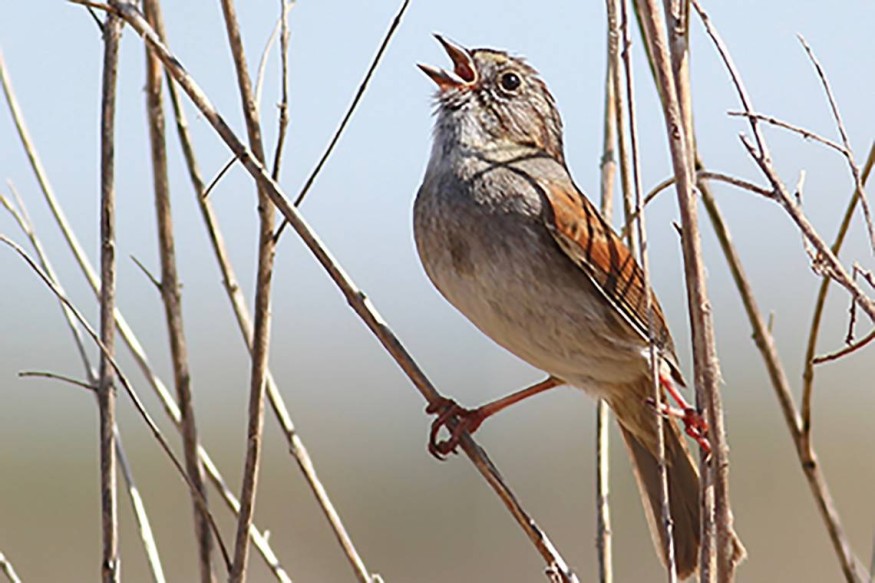
As humans, we recognize the changes in the voices of other people as they age and if you listen to music, you know that few singers still have the same caliber of voices as they grow up. This is also the case with singing sparrows. A recent study led by researchers from Duke University reveals that the elderly swamp sparrows do not sound like they used to and because of that, they rarely intimidate the younger males of the species.
Steve Nowicki, a professor of biology at Duke University and the co-author of the study explains that although it is quite common in humans to guess a person's age just by hearing their voices, this is is the first time that this phenomenon is observed and demonstrated by wild animals. In their study published in the journal Behavioral Ecology, Nowicki and his team described the usual behavior of swamp sparrows during the breeding season. In the early spring, male swamp sparrows would stake out breeding territories and threatens any male swamp sparrow that dares to trespass his territory. A rival male who dares challenge the male swamp sparrow would burst out in a song and the resident male would immediately burst out with a rapid, repetitive, warning song. If the rival male swap sparrow is insistent, the resident male will attack.
This is where the interesting part comes. In previous research done by the team, they discovered that as soon as male swamp sparrows reach two years of age, their vocal prowess starts to decline and that will lead to these males to sing less frequently and less consistent as they grow older. So to be able to find out if younger male swamp sparrows distinguish the changes in the voice of the older species, the team installed a speaker in the territories of 35 male swamp sparrows in a marsh somewhere in Pennsylvania and played 5-minute audio clips of stranger male swamp sparrows that are two years old and 10 years old.
The team measured the responses from the resident male swamp sparrows and noting each male approached the speaker. The discovered that the resident males approached seven feet closer when they heard the song of a two-year-old potential rival and not so much on the 10-year old, meaning, the male swamp sparrows are more aggressive to its younger rivals than the older ones. According to Matthew Zipple, a doctoral student at Duke University, the possible explanation behind this is that the males that are currently in their prime pose and obvious threat: he can steal the mate of the resident male swamp sparrow. The team also notes that if the decrease in song quality reflects the inevitable consequences of physical decline, such changes could suggest to other males that a once-formidable male swamp sparrow is already a shadow of its former self. However, it is still unknown to scientists whether this change in song quality makes the older male swamp sparrows less attractive to females. Nowicki said it is an interesting point to study the female swamp sparrow's point-of-view in this matter. According to Nowicki, the male species of the swamp sparrows accumulate genetic mutations in their sperm as they grow old that could make them less desirable mates.
© 2026 ScienceTimes.com All rights reserved. Do not reproduce without permission. The window to the world of Science Times.












